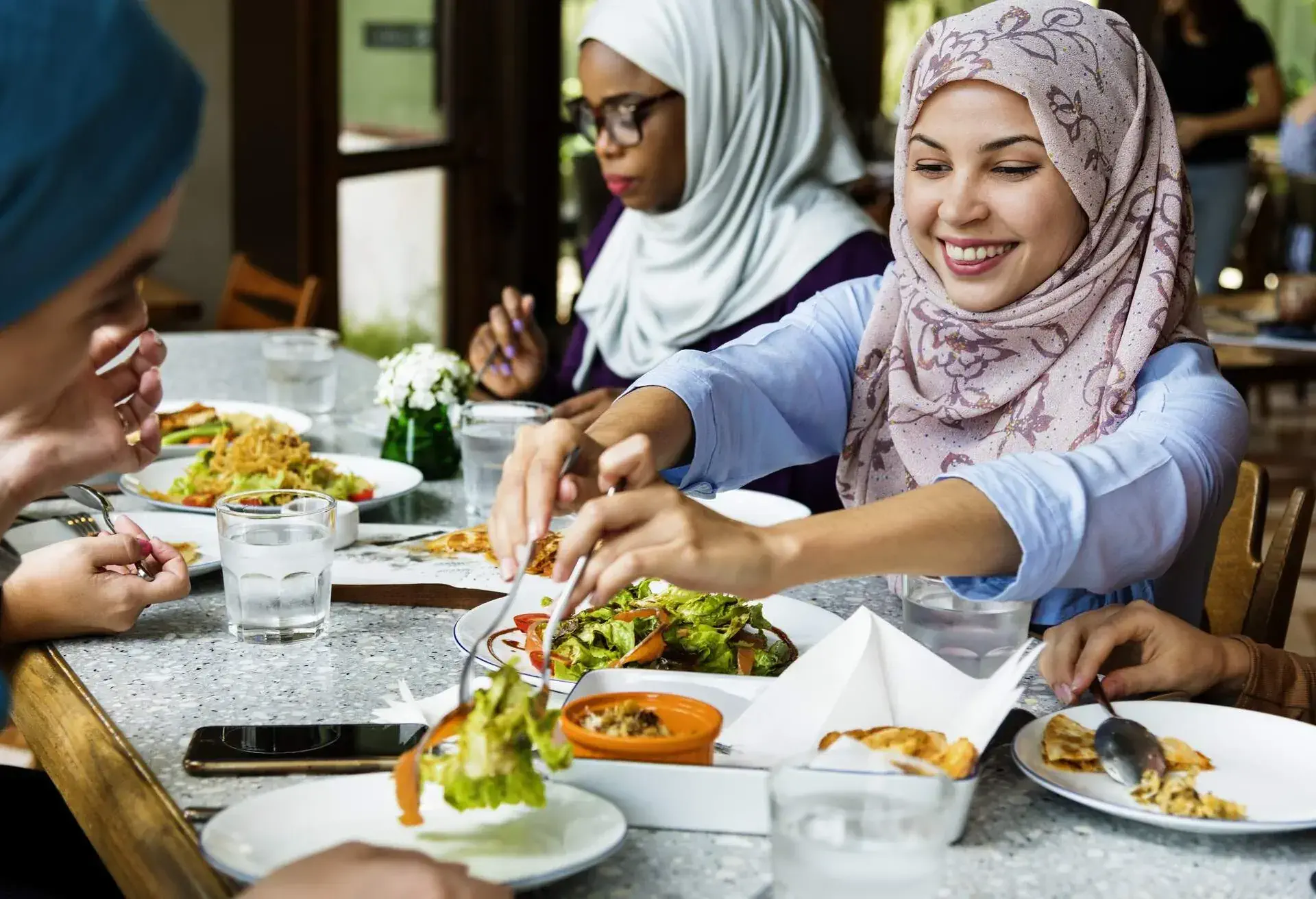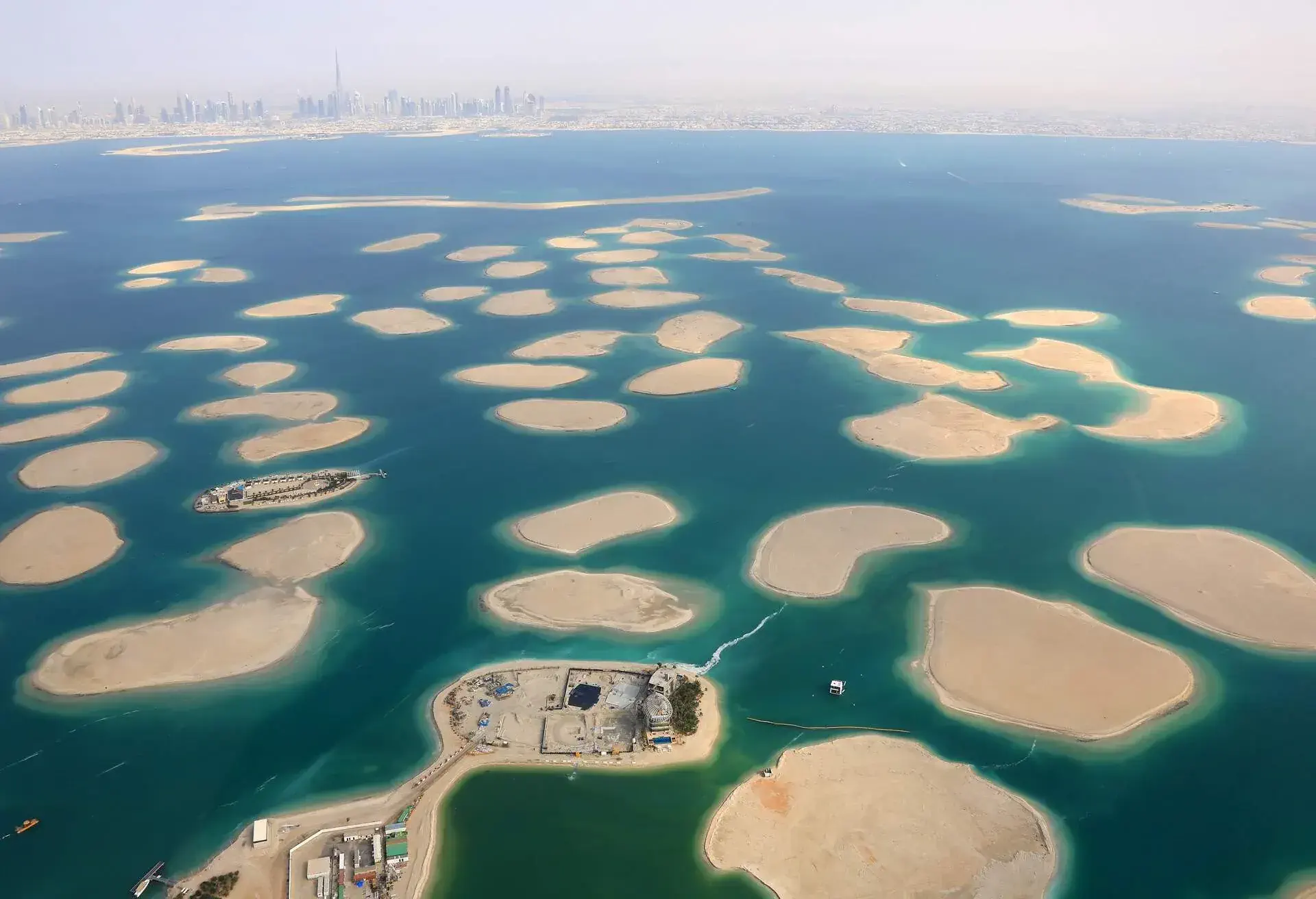Nothing evokes nostalgia better than food. As your taste buds tingle, memories of times with loved ones can come flooding back. In exploring the food of Dubai, we hope to create more memories for you as we discover foods steeped in rich history and influences from all over the world – a testament to its eclectic fusion. These are foods often found on the street or in a hole-in-the-wall venue but are utterly delicious and true to their origin. Everything is set out in such a way that you can quickly jump to your favourite section.
Food of Dubai: Savoury dishes
We start our exploration of the foods of Dubai with savoury dishes; there are so many to choose from. Here are some favourites.
Al Harees
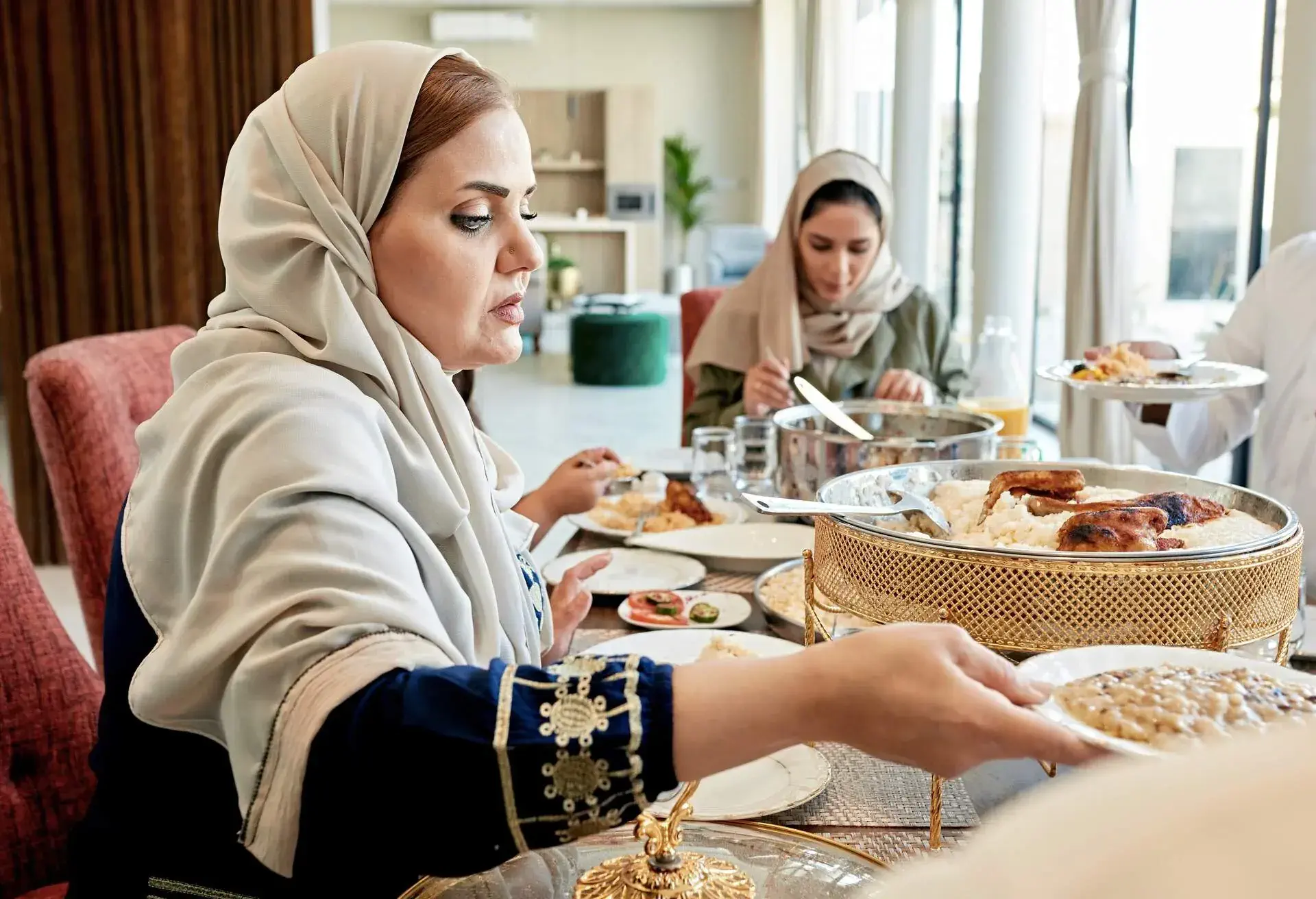
No dish exemplifies the simplicity of ingredients better than Al Harees, a simple porridge-like stew made from crushed, baked wheat, meat (often chicken) and a pinch of salt. Due to the time it takes to make, it’s often eaten during Ramadan, Eid or weddings, topped with local butter and cinnamon. If you are sweet-toothed, have it topped with raisins and sugar.
Al Machboos
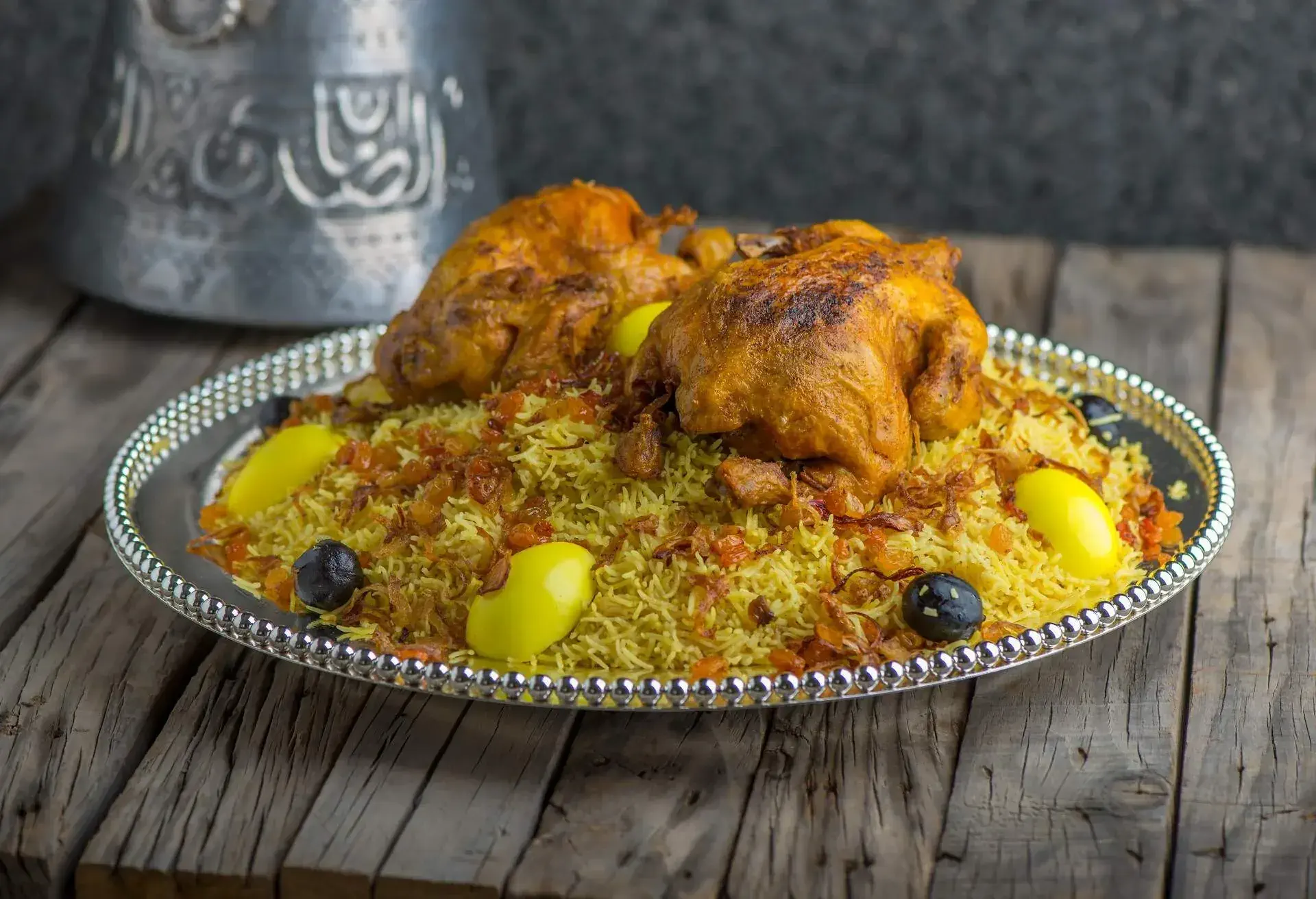
Let’s notch the spicy up a little with Al Machboos; it’s very similar to an Indian biriyani but with a little more attitude. You will find versions with either lamb or chicken, broiled for hours with whole spices like cinnamon, cardamom and lots of onions and dried lime before the rice is added. It’s served topped with either toasted almonds or pine nuts and raisins. A truly delicious blend of sweet, tangy and spicy. You can have it with either yoghurt (should it be too spicy) or a cucumber salad.
Margoogat
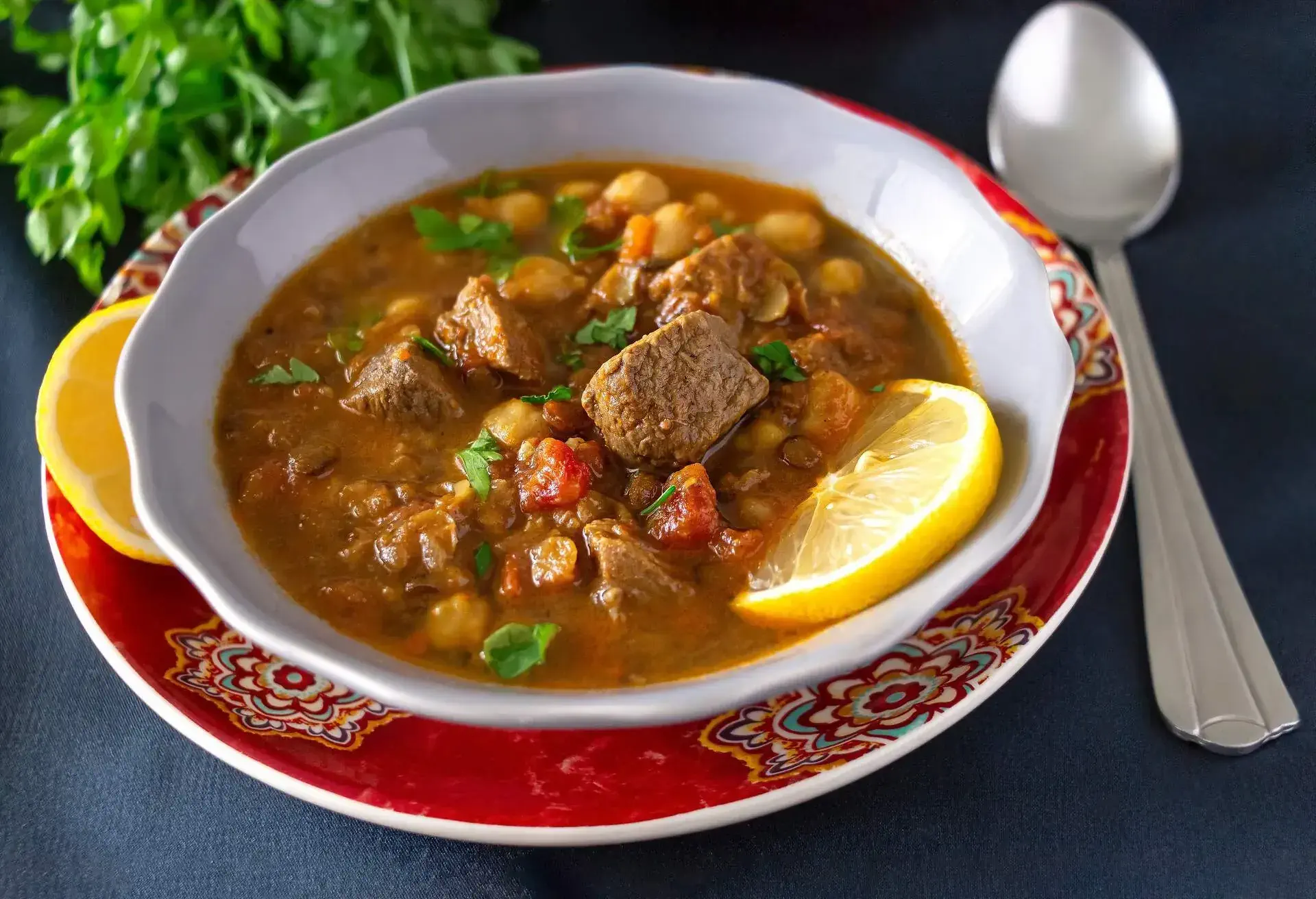
To crank up the heat even further is Margoogat, a popular rich tomato-based stew that will blow off the top of your head. Variations have chicken or lamb cooked with courgette and potatoes, with turmeric, cumin and bezar (a local blend of spices, similar to garam masala). Aseelah at Radisson Blu Hotel has perfected the recipe and has a menu packed with other local delicacies.
Street foods
Dubai’s street food is a fine example of cultural blends, where Middle Eastern and Asian cuisine shine. This list only skims the very top of what is on offer.
Shawarma
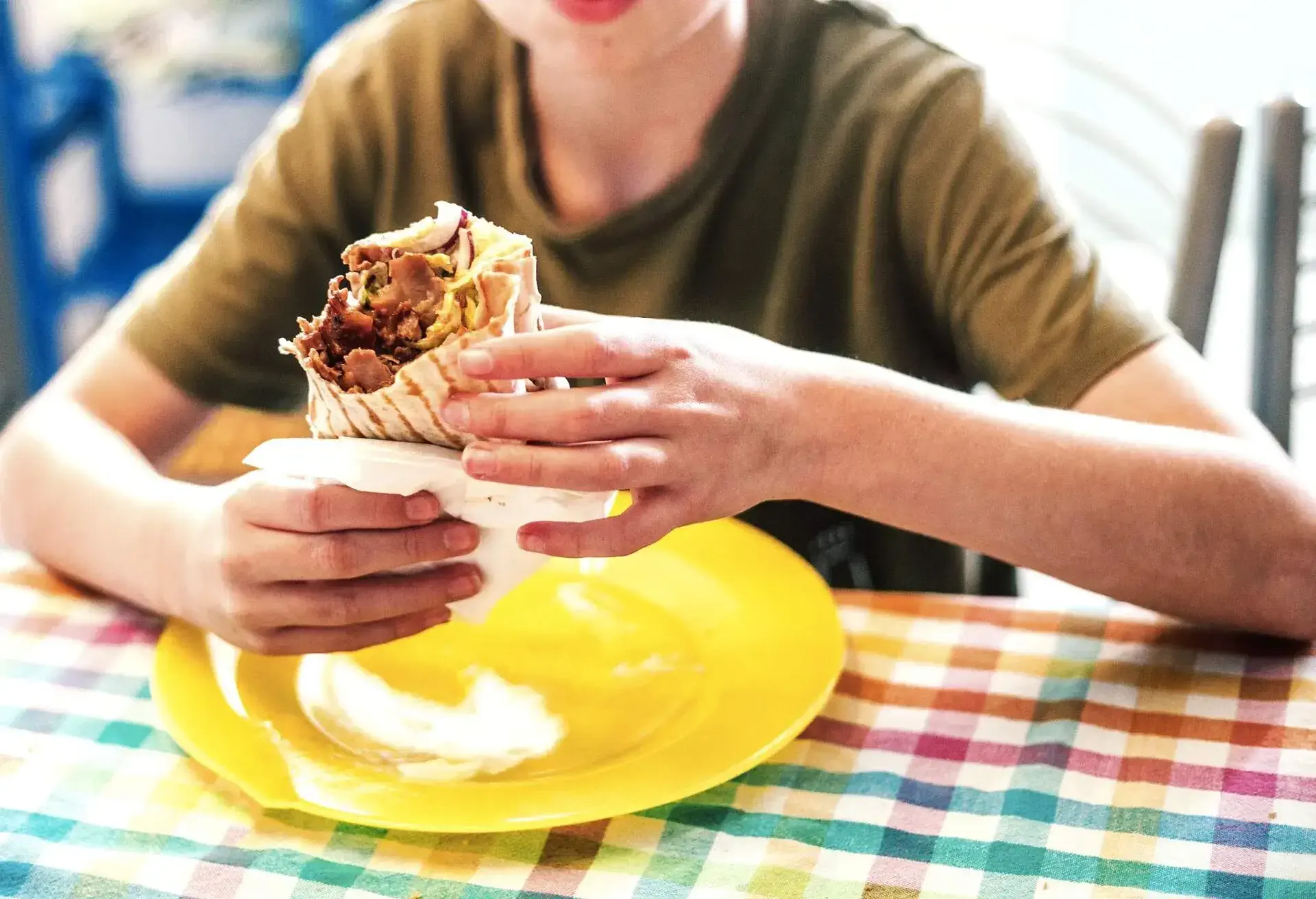
Shawarma is by far one of the most popular street foods found in Dubai. You’ve got to know where to find yours in order not to be disappointed. Head to Al Mallah, who’s been running since the 70s, so you won’t be surprised that they’ve perfected this favourite. Slices of either chicken or lamb, beautifully spiced and slowly charred to perfection, are layered on a fluffy fresh pita with a perfectly punchy garlic sauce. Wash it down with watermelon juice and you will never have shawarma anywhere else.
Manousheh
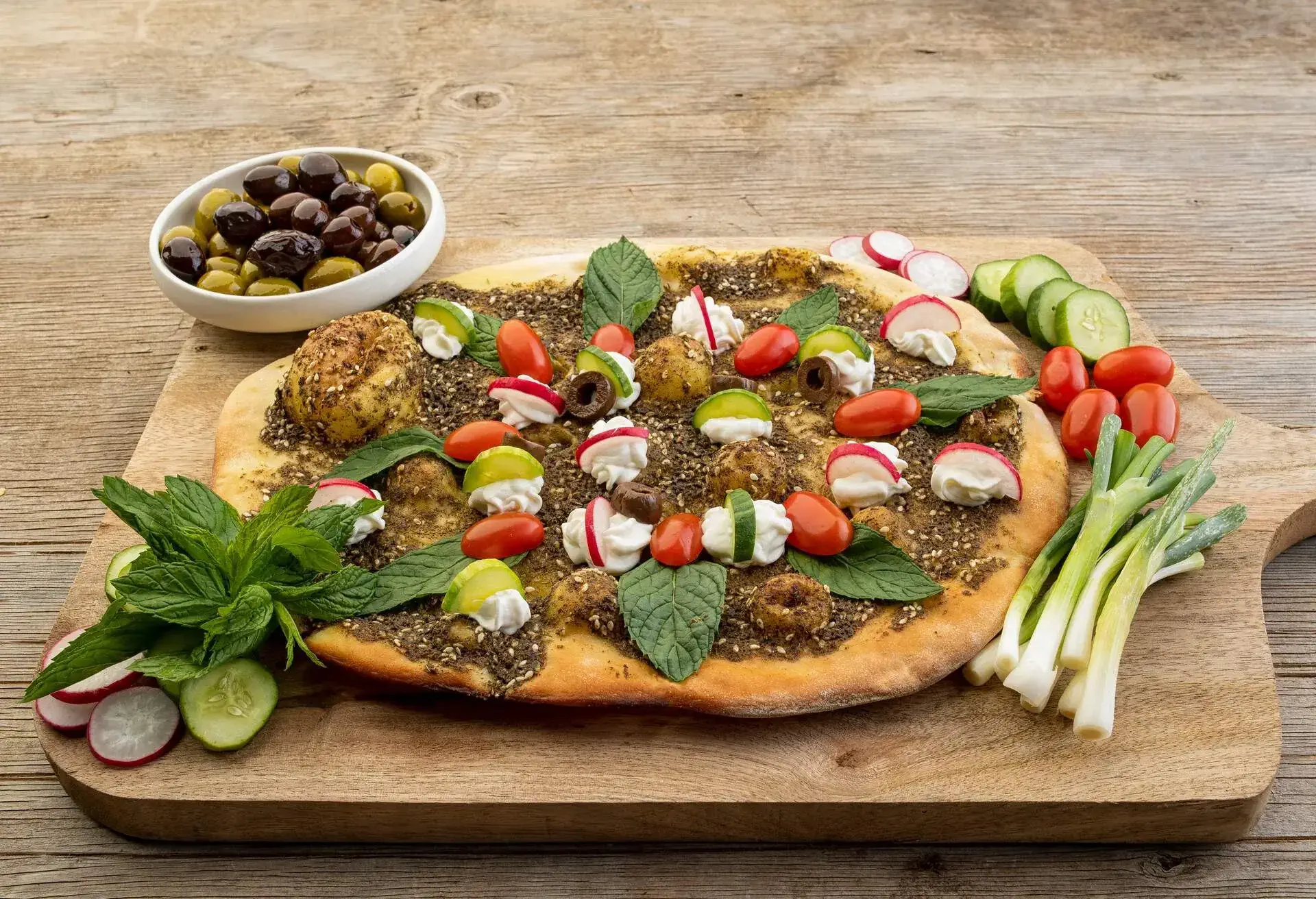
If ever you’ve secretly craved pizza for breakfast, then manousheh, dubbed “Dubai pizza”, is unapologetically for you. With Lebanese origins, this flatbread is loved by locals – you will see why once you try it. A flatbread (freshly made, of course) is topped with a choice of ingredients, often exotic. Try it with akkawi cheese, za’atar with olive oil or minced lamb. Have one with sweet jam topped with eggs and breakfast is served. Head downtown to Man’oushe Street, where your tongue and mind will be boggled.
Anda paratha roll
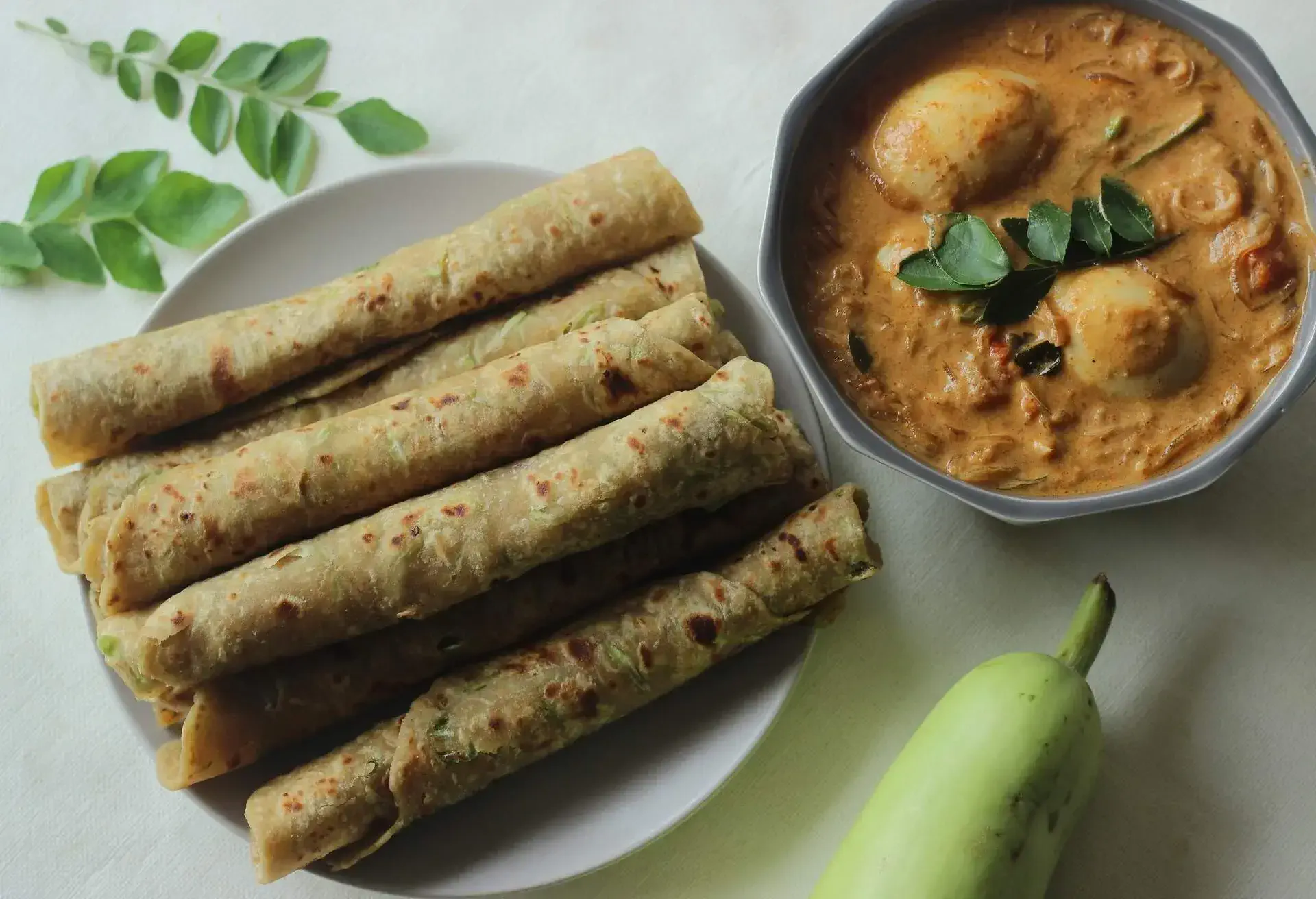
A breakfast street food that lends itself to the Asian diaspora in Dubai is anda paratha roll. It’s basically an omelette wrapped in a paratha (flaky white flatbread), smothered in a hot vinegary and sweet cream cheese with an addition of crispy chips. It goes without saying you should have it with karak chai, an Indian tea made with tea leaves, cardamom, evaporated milk, saffron and a mountain of sugar. The offerings at the souks don’t disappoint.
Bread
Bread is part and parcel of the food of Dubai and, boy, does it come in many forms. There’s one that’s particularly worth a mention, though.
Fatayer
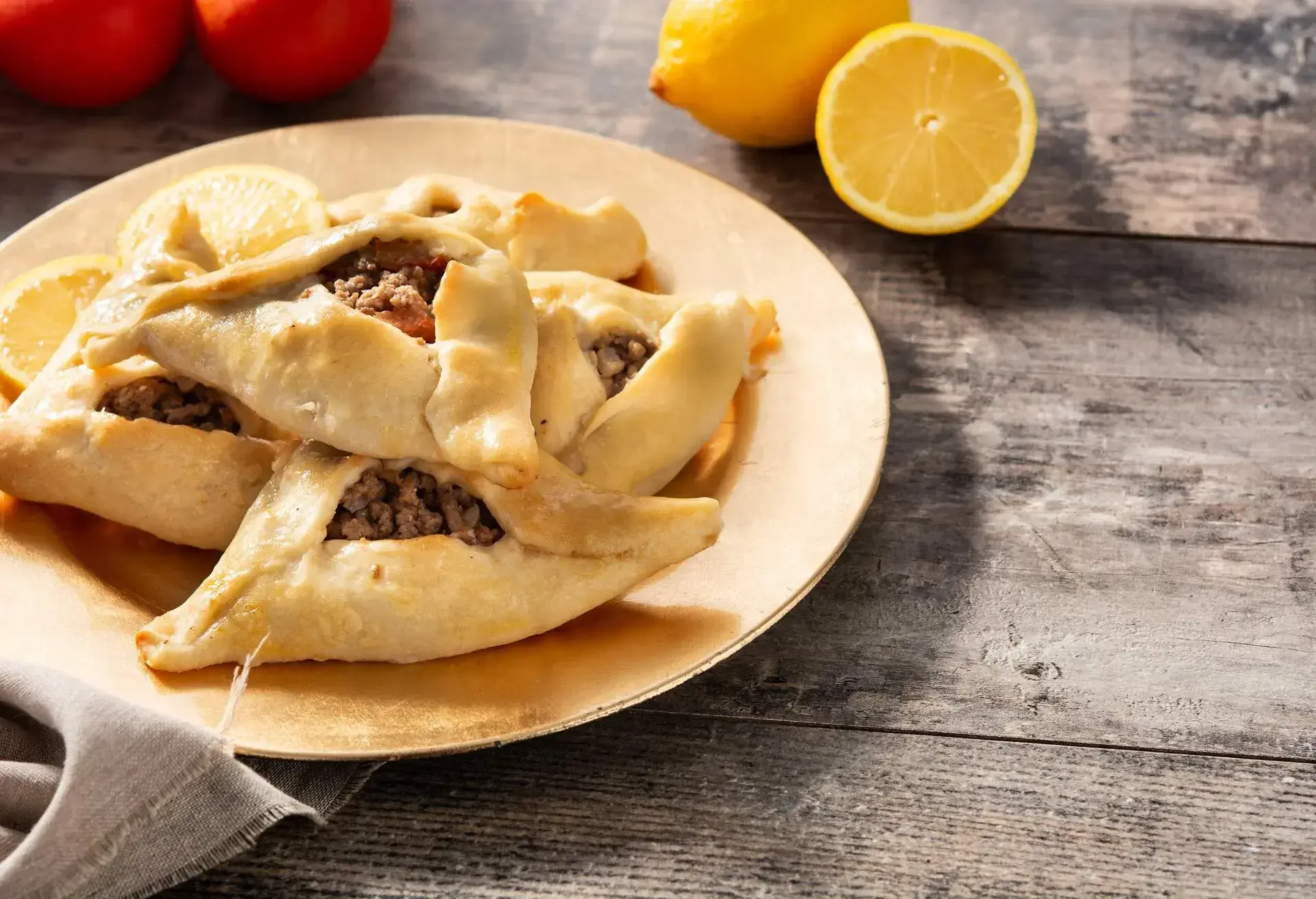
Fatayer is an elongated bread with all sorts of fillings – it takes bread to a different stratosphere. There are many bakeries around Dubai that bake this gooey morsel, but head to Old Town Dubai and particularly to Mama’eesh for yours.
This authentic Palestinian restaurant, with a few branches dotted around, uses organic flour and fair-trade olive oil to bake theirs in stone ovens. Try one with minced lamb, or choose muhammara (a spicy blend of roasted red peppers with breadcrumbs and walnuts) for a vegetarian version. Topped with cheese, both come drizzled with zingy pomegranate molasses for an experience to remember. To complete the pockets, not that they need any enhancement, they’re sprinkled with the magic dust za’atar, a tangy blend of thyme, toasted sesame seeds, dried sumac berries and salt – a prerequisite of an authentic fatayer.
Sweets
It goes without saying that sweets have got to be featured in the list of food in Dubai.
Chebab
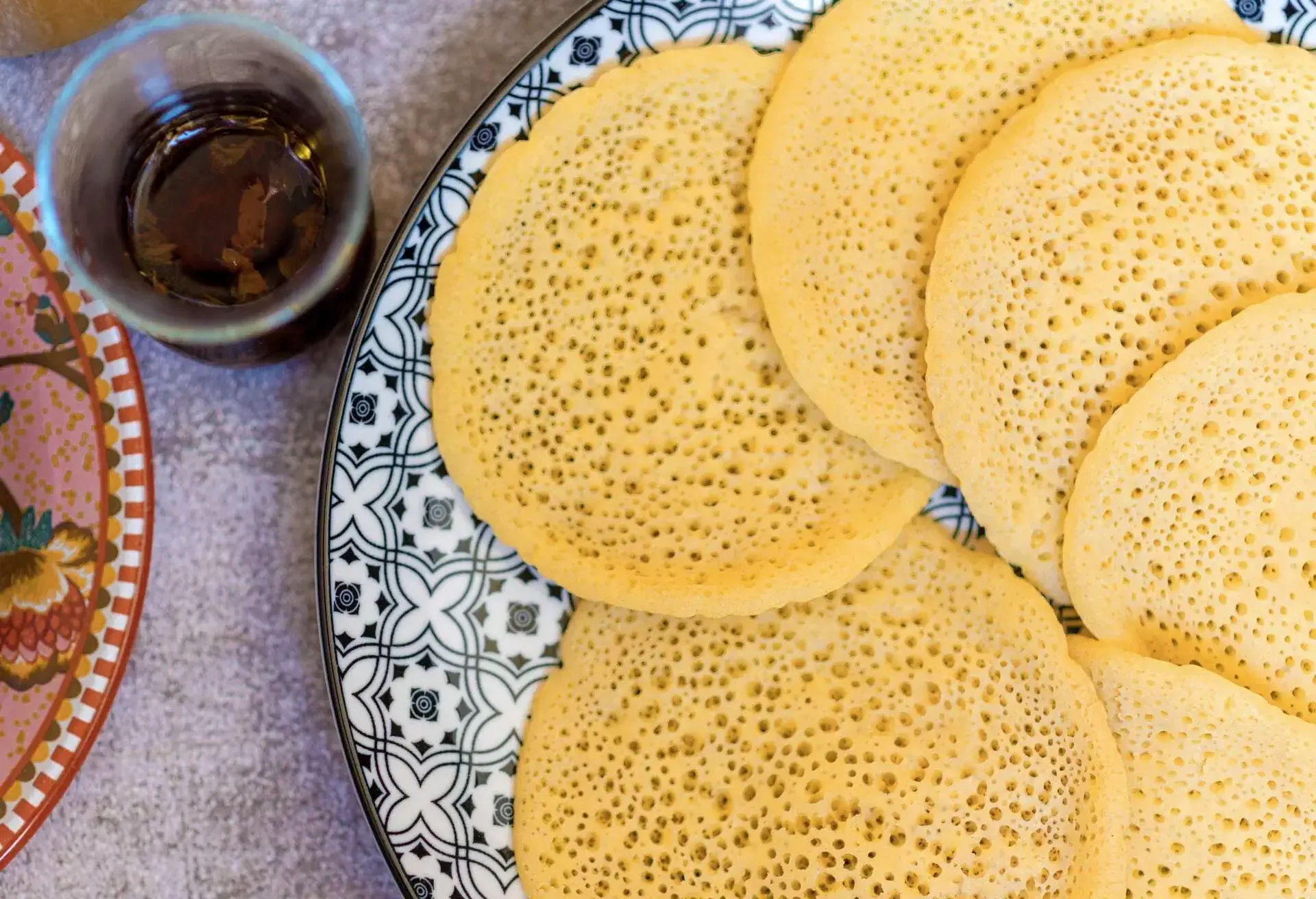
Kicking off with a breakfast favourite, chebab is a type of pancake with saffron and cardamom. The pancake comes stuffed with three different types of sour cheese and drizzled, or doused, in a molasses-like syrup made from dates. Head to the historical neighbourhood of Al Fahidi, where you will find the quaint Arabian Tea House making some of the best chebab. They also do a mean Arabic coffee, which is served with dates.
Knafeh
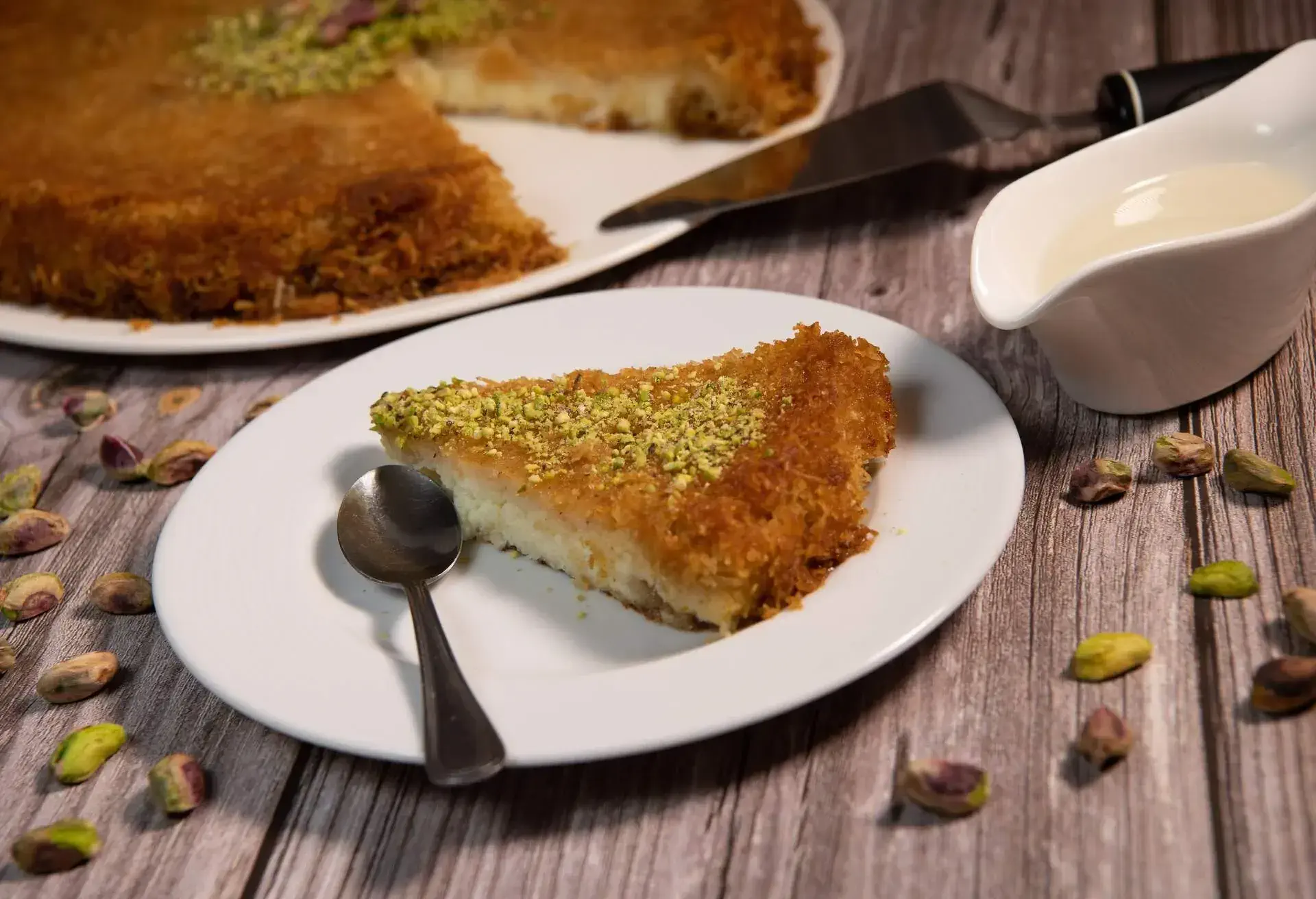
Another top sweet dish that is a must-try is knafeh. It’s a melted cheese pie topped with either kataifi (spun pastry) for a crunchy finish or ground dough for a softer version, served with oodles of attar, a sweet syrup, and topped with pistachios. With its roots in Palestine, knafeh has been firmly adopted by the locals. Head downtown to Dubai Mall and Logma for a bite into this gooey deliciousness.
The top end
In a city full of restaurants rising up into the skies, it’s only right that I highlight one dish when talking about the food of Dubai.
Demon Duck
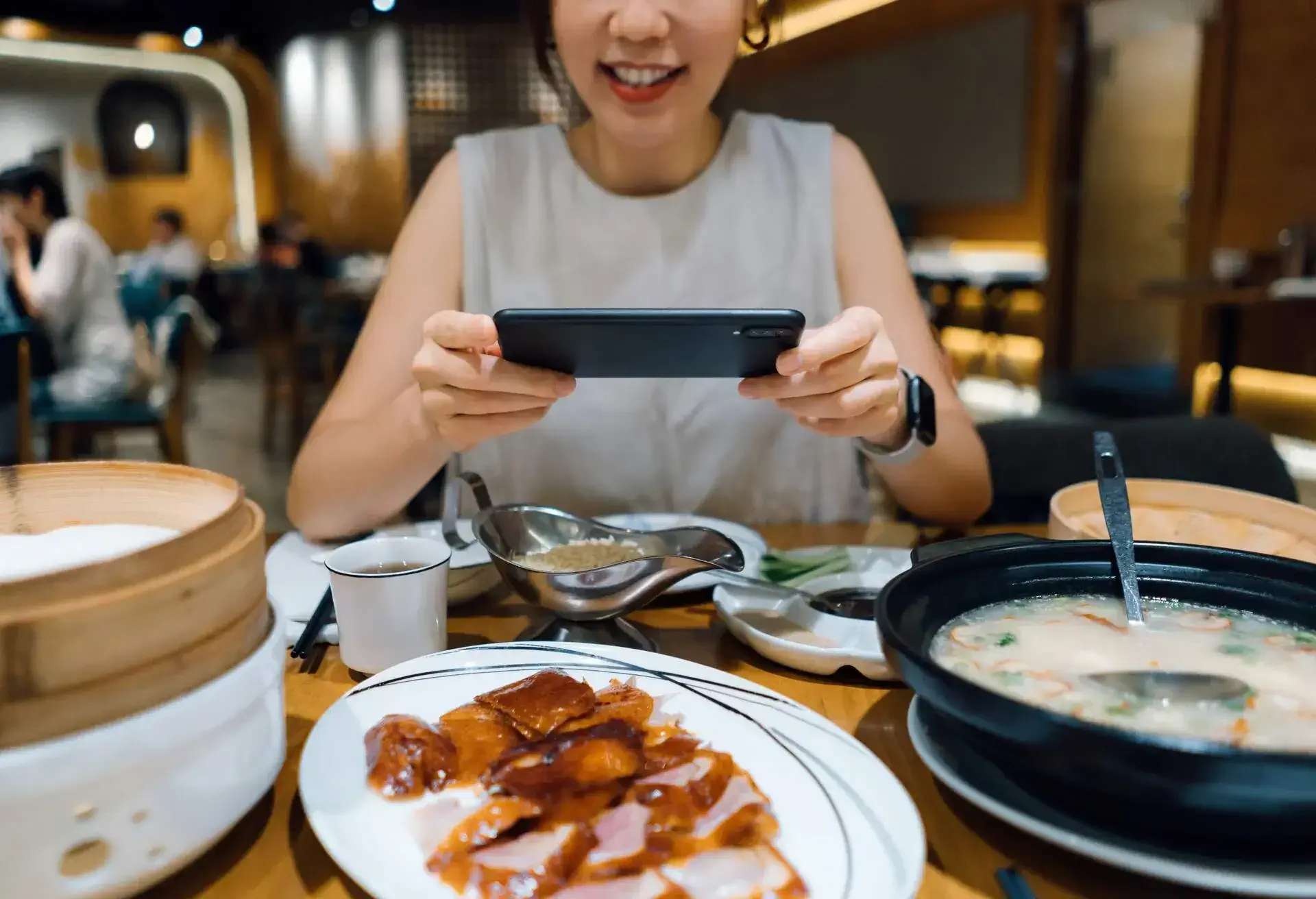
If ever there was a dish that embraces the mixed culture that is Dubai, then the Peking duck from Demon Duck, at Caesars Palace on the Bluewaters Island, is it. The duck is boiled or steamed in hot water, dried and hung for a day before being roasted. The result is soft, juicy, fat meat with ultra-crispy skin. This is served with shredded cucumber (which helps break the fat), steamed bao buns, lettuce wraps, a soup and hoisin sauce, along with some amazing presentation. It’s a hugely popular dish, so come early with your besties – it does sell out.
Alcohol
The exotic blend of culture and spices is not confined to the food in Dubai; it flows into many, mostly sky-high venues, finding its way into cocktail glasses. Dubai isn’t as teetotal as most people assume – on the contrary, it has a lively cocktail scene, so it’s only fair that one or two venues are mentioned.
Coya
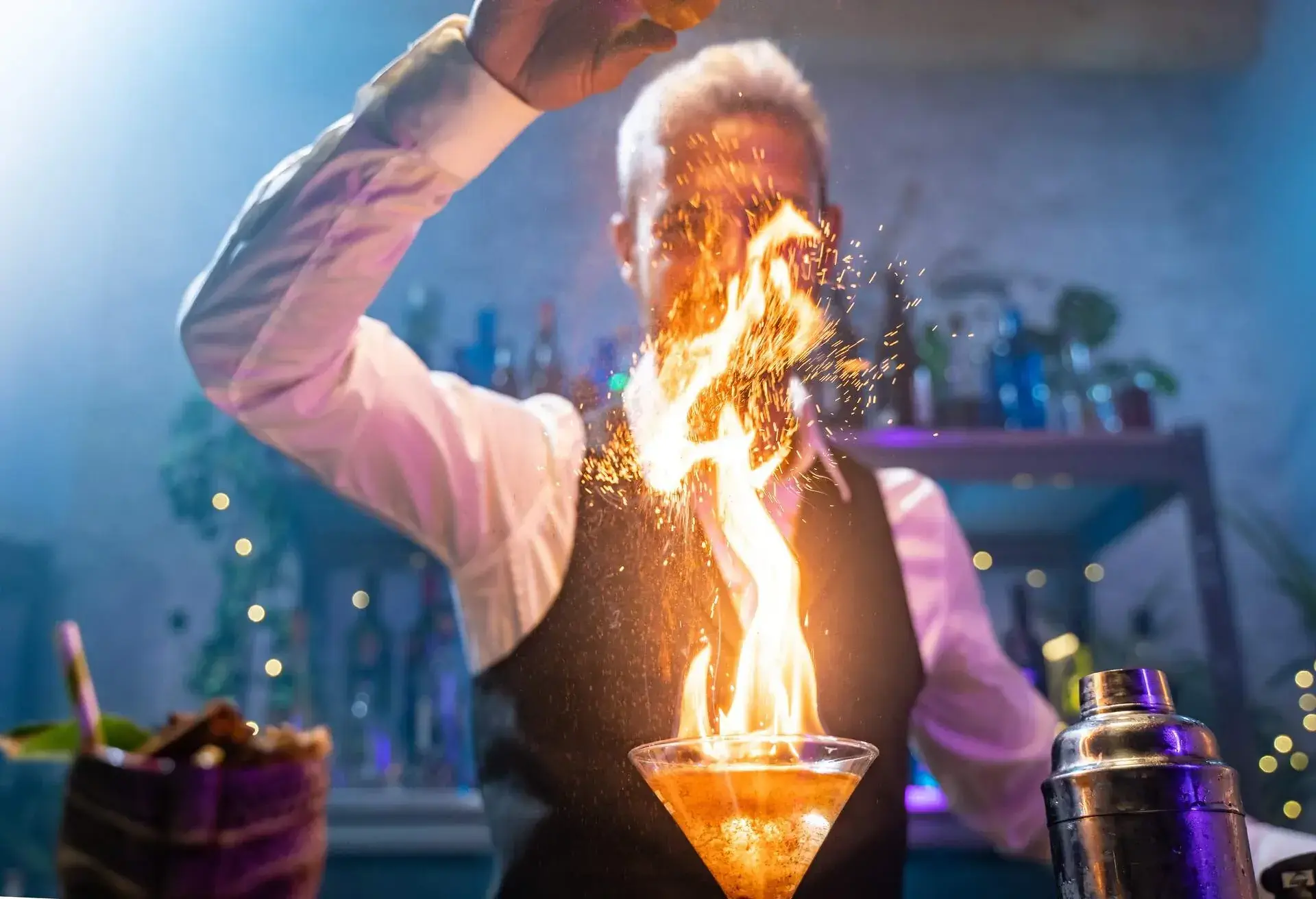
For a taste of Peruvian culture, head to Four Seasons Resort, Jumeirah Beach, specifically Pisco Bar at Coya, where expert mixologists serve cocktails inspired by the oldest bars in Lima. The wasabi and apple pisco sour is unlike anything you’ve ever tasted; you’ll find yourself asking for a top-up. The non-alcoholic offerings are quite inspirational, too: the purple rain mixes chicha morada, passionfruit puree, fresh lime and pineapple juice with a pinch of sugar for a luscious long drink.
Buddha Bar

You’ll get Asian-infused flavours upstairs at the Buddha Bar Dubai, within Grosvenor House Hotel in the heart of Dubai Marina. Apart from the floor-to-ceiling windows that offer the perfect views of the marina, the cocktails are to die for. Their maha bodhi blends pandan-infused vodka, sake, passion fruit, mango and cranberry juice to near perfection.
Excited for your next adventure? Our friends at Where to Go, produced by the team behind the award-winning DK Eyewitness travel guides, are here to help!
Each fortnight, hosts James and Lucy talk to local experts about the destination they have chosen to call their home, exploring their personal connection to the place, what makes it so special and the best things to see and do.
Listen to the podcast below for more inspiration and tips from Dubai:

